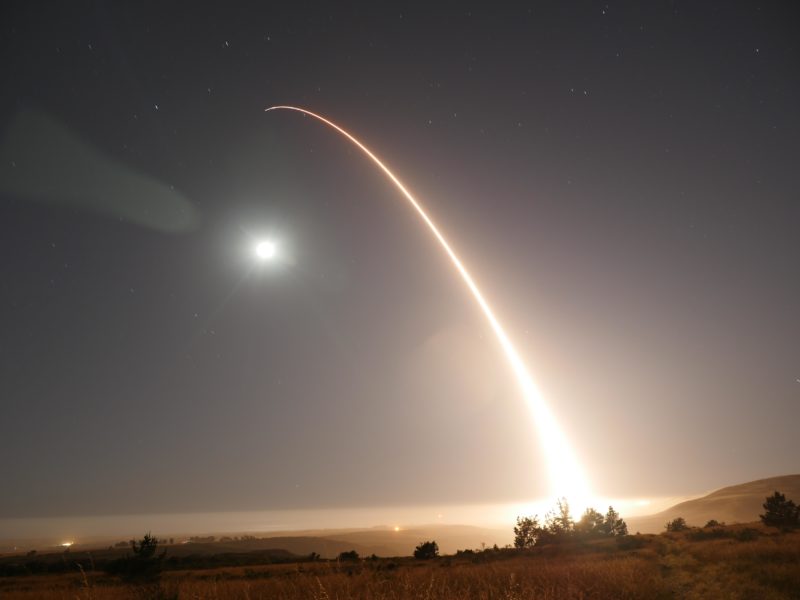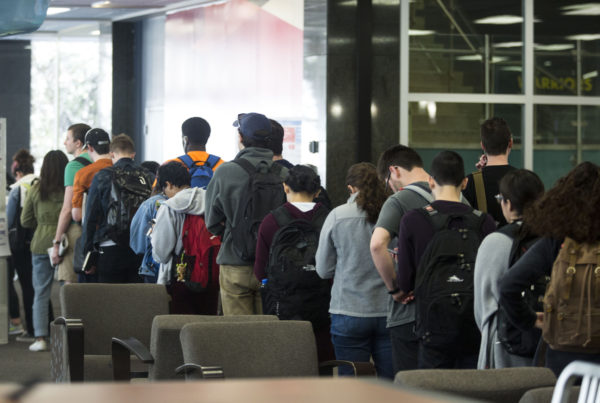President Donald Trump’s anti-diplomatic overtures to North Korea have not triggered a nuclear war yet, nor have they brought about disarmament, nor an end to North Korea’s pursuit of nuclear weapons.
But as some plead to bring in the diplomats, lest Mr. Trump screw things up with injudicious tweets, it’s worth acknowledging an ugly truth they won’t teach you at the school of foreign service – when dealing with bullies, treat them like the bullies they are. And when they’re ready to talk, be ready to listen. Now Trump has agreed to meet with Kim Jong Un face to face.
Paul Miller, the associate director of the Clements Center for National Security at the University of Texas at Austin, describes the Trump administration’s approach to North Korea as “coercive diplomacy.”
“He’s been making threats,” Miller says. “And that has perhaps contributed to the North Koreans’ willingness to get to the negotiating table.”
While a face to face meeting with the president will be unique, Miller says, in general, the approach is nothing new.
“Bill Clinton did this in 1994,” he says. “North Koreans came to the bargaining table. They agreed to the ‘94 Agreed Framework, and just a year or so down the line, they started cheating on it. George W. Bush did this in 2003. He made some threats. That was right after Iraq – we had invaded and overthrown the regime in Iraq and the North Koreans were pretty nervous about that, so they agreed to the Six Party Talks. And just a few years later they succeeded in building nuclear weapons.”
Miller says that how the negotiations begin really doesn’t matter – what matters is where the talks go.
“In the past, the North Koreans have used talks to stall for time and to blackmail the international community into giving them more aid,” he says. “And they’ve successfully used the time to build their nuclear weapons program. So I’m not convinced that this is the victory that President Trump wants. We’ll see what happens once the talks actually begin.”
The meeting will be historic in one sense – this is the first time a sitting U.S. president and a sitting leader of North Korea will meet face to face.
“It really gives a lot of prestige to the North Korean leader,” Miller says. “He’s wanted this for quite a long time – he and his predecessors. And it makes it look like America and North Korea are on equal standing, going toe to toe on the world stage. That is a really good almost propaganda coup for the North Korean leader.”
In these talks, Miller says the U.S. goal will be for North Korea to give up their nuclear weapons.
“I’m very pessimistic that that will happen,” Miller says. “I think the North Koreans have virtually no incentive to do that. They see their nuclear weapons as the guarantee of regime survival and I don’t understand why they would ever give that up.”
Miller says the North Koreans are likely agreeing to the talks because they’re close to achieving their nuclear development goals.
“They’re close enough to it, but they’re also just scared enough of Trump that they don’t want to screw up in these last few months before they finally get to their goal,” Miller says.
He says that’s why they’re agreeing to these talks once again – to stall for time, allowing themselves to get across the finish line with their nuclear arsenal.
Written by Jen Rice.
















